Bell peppers are a popular, crunchy vegetable found in many kitchens, but are they safe for rabbits? If you’re a rabbit owner, you might wonder can rabbits eat bell peppers or whether bell peppers can be a healthy treat for your furry friend. Yes, rabbits can safely eat bell peppers! Let’s dive into the details about feeding bell peppers to rabbits.
What Are Bell Peppers?
Bell peppers, also known as sweet peppers or capsicum, are vibrant vegetables that come in various colors, including red, green, yellow, and orange. They belong to the Capsicum family and are enjoyed for their sweet flavor and crunchy texture.
Nutritional Value of Bell Peppers
Bell peppers contain nutrients such as vitamins A, C, and E, fiber, and antioxidants. They are low in calories and do not contain fat, making them a healthy choice for both humans and rabbits.
- Calories: 31 kcal
- Protein: 1 g
- Carbohydrates: 6 g
- Sugar: 4.2 g
- Fiber: 2.1 g
- Fat: 0.3 g
- Vitamin C: 127.7 mg (213% of the Daily Value)
- Vitamin A: 157 mcg (17% of the Daily Value)
- Folate: 46 mcg (12% of the Daily Value)
- Potassium: 211 mg
- Magnesium: 12 mg
Are Bell Peppers Safe for Rabbits?
Yes, bell peppers are safe for rabbits in moderation. These colorful vegetables provide essential nutrients without posing significant risks, as long as they are fed in appropriate portions.
Benefits of Feeding Bell Peppers to Rabbits
Rich in Vitamins
Bell peppers are high in vitamins A and C, which are essential for a rabbit’s overall health, supporting the immune system and healthy eyesight.
Low in Calories
Since bell peppers are low in calories, they make an ideal snack for rabbits who need a balanced diet without the risk of weight gain.
According to the House Rabbit Society, vegetables like bell peppers can be a healthy addition to a rabbit’s diet due to their fiber content and low-calorie profile.
Risks of Feeding Bell Peppers to Rabbits
Sugar Content
While bell peppers are nutritious, they do contain some natural sugars. Feeding too many can disrupt your rabbit’s diet and lead to digestive issues.
Pesticide Residue
Bell peppers often carry pesticide residues. Washing them thoroughly before feeding them to your rabbit is crucial to avoid any potentially harmful effects.
Non-organic bell peppers may carry pesticide residues. The ASPCA advises that all fruits and vegetables should be washed thoroughly before feeding them to pets.
Which Colors of Bell Peppers Are Best for Rabbits?
Red Bell Peppers
Red bell peppers are sweeter than other varieties and contain the highest vitamin C content, making them a great choice in small amounts.
Green Bell Peppers
Green bell peppers are slightly bitter and contain fewer natural sugars, making them suitable for rabbits who need to avoid too much sugar.
Yellow and Orange Bell Peppers
These peppers offer a balance of sweetness and nutrition, falling somewhere between red and green peppers in terms of sugar content and vitamin levels.
How to Safely Prepare Bell Peppers for Rabbits
Washing Thoroughly
Always wash bell peppers under running water to remove any dirt or pesticides.
Cutting Into Appropriate Sizes
Slice the bell pepper into small pieces to make it easier for your rabbit to eat and digest.
Disclaimer: Always consult a veterinarian before introducing new foods to your rabbit’s diet, especially if your rabbit has any pre-existing health conditions.
Can Rabbits Eat Bell Pepper Seeds and Stems?
No, it’s best to avoid feeding the seeds and stems to your rabbit. While not toxic, they are difficult to digest and could cause a choking hazard.
How Often Should Rabbits Eat Bell Peppers?
Bell peppers should be offered as a treat, not a daily staple. Limit servings to small portions, about a tablespoon, a few times a week.
Signs Your Rabbit May Not Tolerate Bell Peppers
If your rabbit shows signs of discomfort, diarrhea, or unusual behavior after eating bell peppers, discontinue feeding them and consult a vet.
Alternative Vegetables for Rabbit Diets
Other vegetables that are safe for rabbits include leafy greens like herbs such as parsley and cilantro.
How to Gradually Add Bell Peppers to Your Rabbit’s Diet
Start by offering a small piece and observe your rabbit’s reaction over the next 24 hours. If no adverse effects are noticed, you can gradually increase the amount.
Other Fruits
What to Do if Your Rabbit Overeats Bell Peppers
If your rabbit consumes a large quantity of bell peppers, monitor them for any signs of digestive distress and seek veterinary advice if necessary.
Overfeeding bell peppers can cause digestive issues, including diarrhea, due to the natural sugars they contain. Additionally, if pesticides are present, they could lead to long-term health effects.
Expert Opinion on Bell Peppers for Rabbits
Dr. Jane, a veterinarian with experience in rabbit care, states, ‘While bell peppers can be a healthy treat, it’s essential to keep portions small to avoid digestive upset due to their sugar content.’
Conclusion
Bell peppers can be a tasty and nutritious treat for your rabbit when fed in moderation. Remember to wash them thoroughly, remove seeds and stems, and introduce them gradually. As always, monitor your rabbit’s reaction and adjust their diet accordingly.
Frequently Asked Questions
- Can baby rabbits eat bell peppers?
It is not recommended to give bell peppers to baby rabbits under three months old, as their digestive systems are still developing. - Are there other peppers that rabbits can eat?
Stick to sweet bell peppers; spicy peppers like jalapeños or chili peppers should never be given to rabbits. - What vegetables can rabbits not eat?
Rabbits should avoid onions, garlic, potatoes, rhubarb, and iceberg lettuce, as these can be toxic or harmful. - Can rabbits have tomatoes?
Yes, rabbits can eat tomatoes in small amounts, but the leaves and stems are toxic and must be avoided. - Can rabbits eat cucumbers?
Yes, rabbits can eat cucumbers as an occasional treat; they are low in calories and hydrating. - What is rabbits’ favorite food?
Rabbits love fresh hay, leafy greens, and certain vegetables like carrots and bell peppers in moderation.

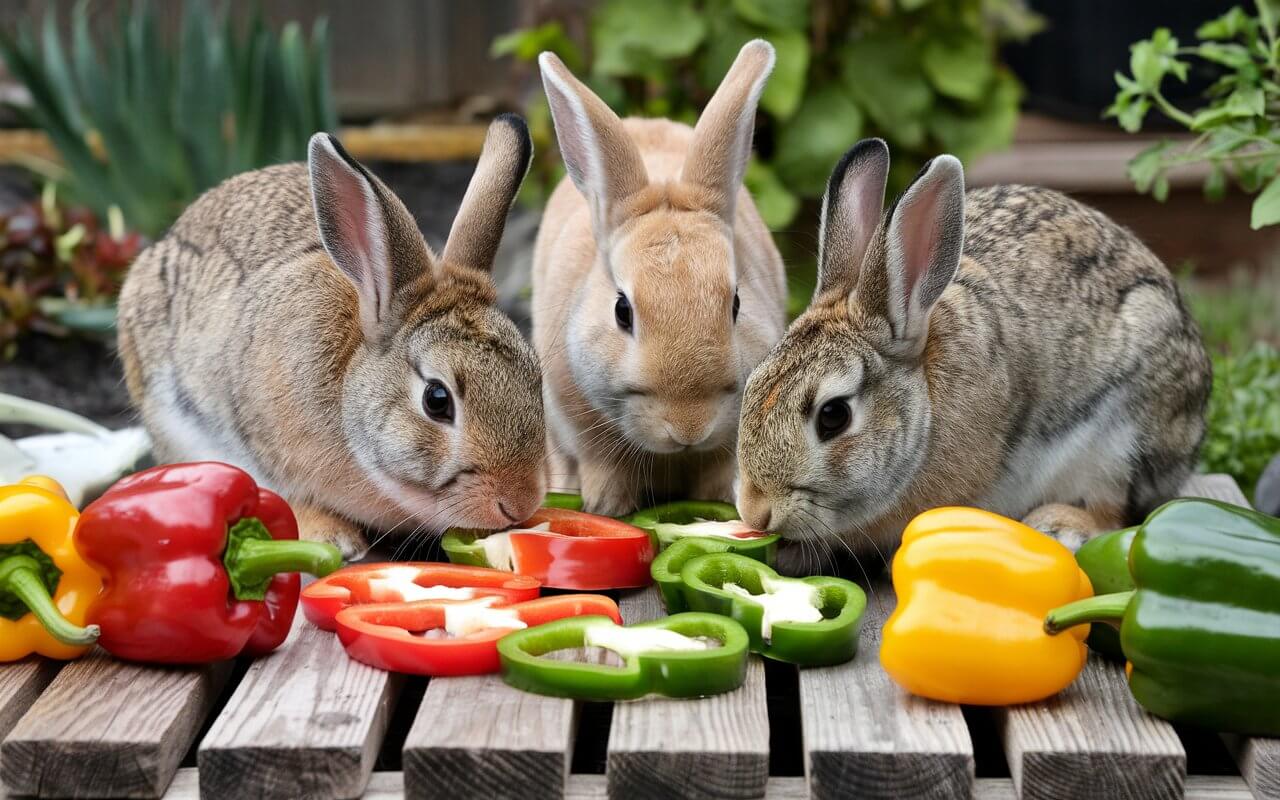
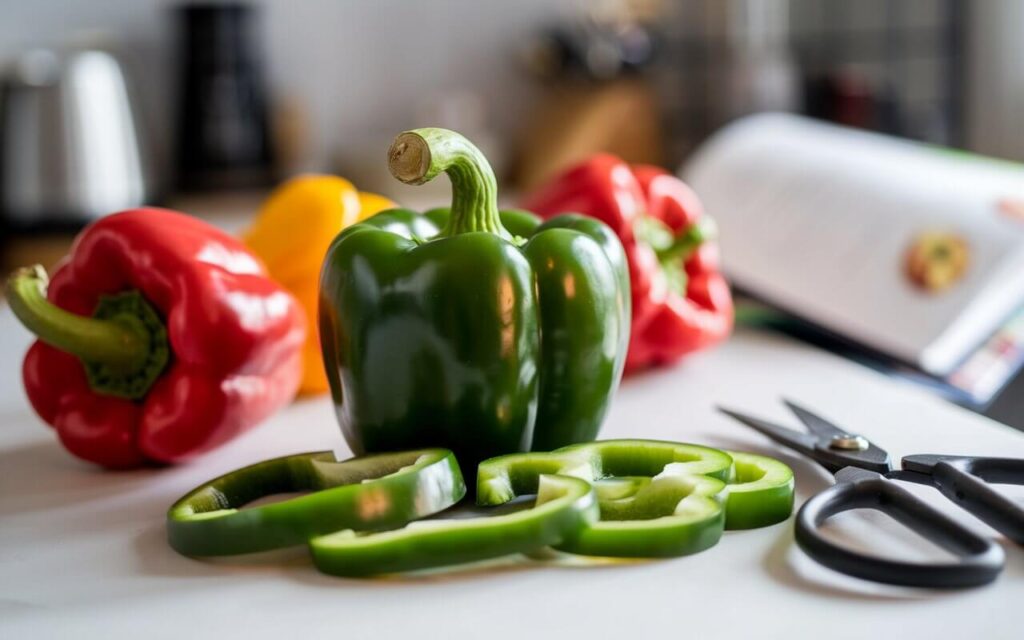
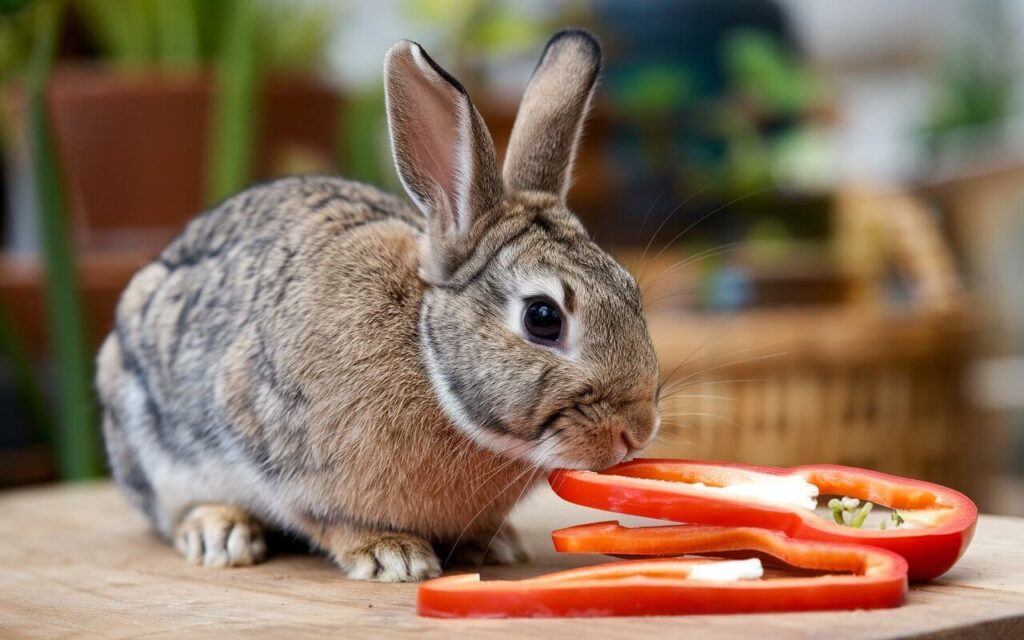
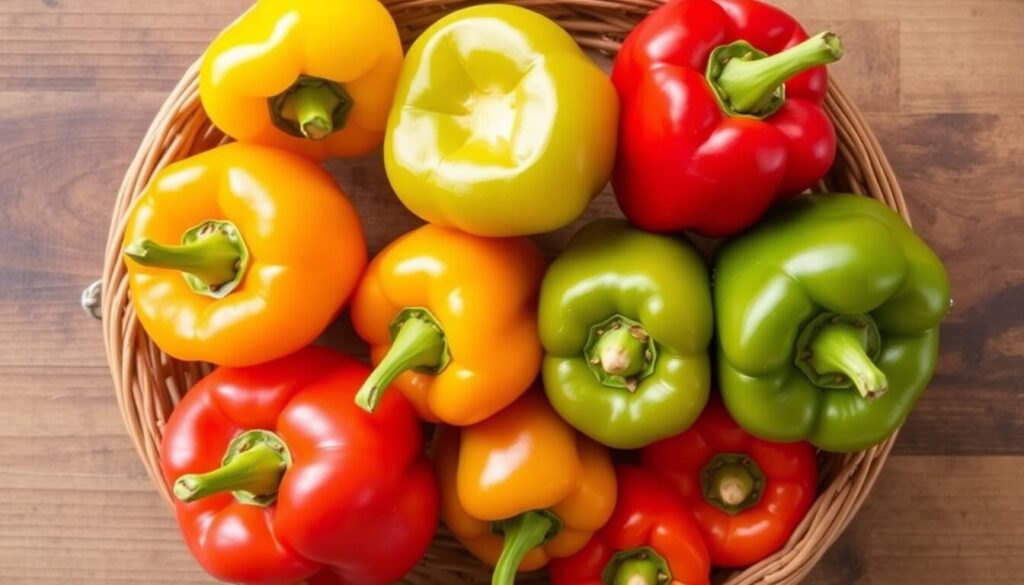

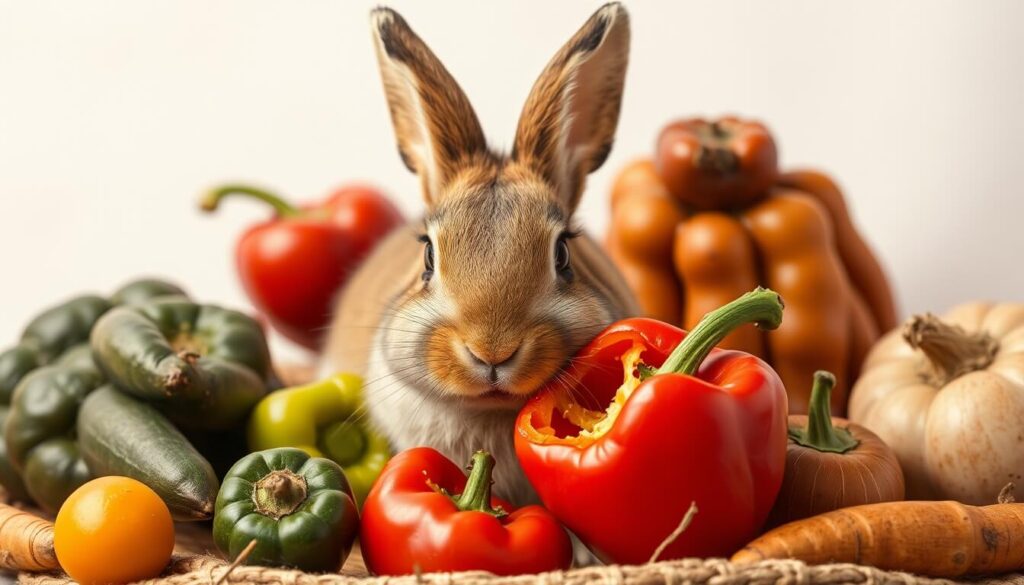

Leave a Reply